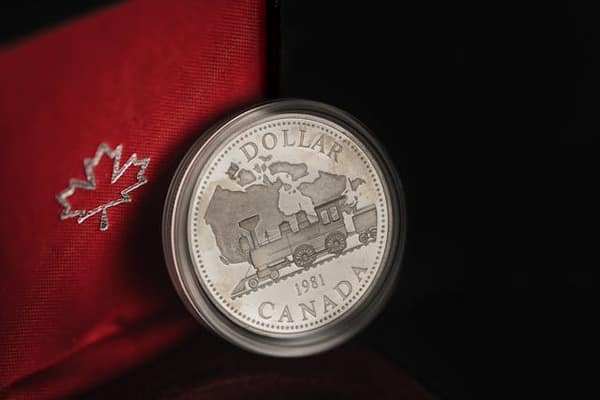Prime Minister Justin Trudeau’s expected resignation helped boost the Canadian dollar on Monday morning, with some experts interpreting the move as a sign of growing confidence in Canada’s economy amid the prospect of new leadership. After struggling for several months heading into the new year, the loonie briefly rose by about one percent in early trading on Monday against the U.S. dollar as news of Trudeau’s departure spread.
The Canadian dollar had experienced a tough end to 2024, partly due to signals of a widening policy rate gap between the Bank of Canada and the U.S. Federal Reserve, which hurt the loonie in comparison to the greenback. Trade threats from U.S. president-elect Donald Trump since his re-election in November also weighed on the Canadian dollar. Additionally, Chrystia Freeland’s resignation from Trudeau’s cabinet just before she was set to present the government’s fall economic statement in late December caused the loonie to stumble.
Allan Small, an investment adviser at iA Private Wealth, told Global News that while many factors can influence the loonie’s value on any given day, the exchange rate between the Canadian and U.S. dollars is ultimately a reflection of confidence in Canada’s economy. He explained that the Monday movement signals how investors view Trudeau’s leadership and the economic policies implemented during his time as prime minister. “The loonie actually went higher, which tells me that investors, in general, and foreign investors believe this is a good move, that our dollar was depressed because of leadership and the way the country was being run,” Small said.
However, Small also pointed out that a weaker loonie has two sides, with the relative strength of the U.S. economy and expectations for a pro-growth agenda under Trump encouraging investors to place their money in the U.S., driving up the American dollar. While the initial market reaction was positive, Tu Nguyen, an economist at RSM Canada, cautioned that Trudeau’s resignation could introduce more uncertainty to Canada’s economy. “For nearly a decade, Canada’s political stability helped attract foreign investments,” Nguyen said. “Trudeau’s resignation adds to the uncertainty in Canada’s economic environment, which could temporarily deter investment flows.”
Trudeau will remain prime minister until the Liberal Party selects a new leader. He has also prorogued Parliament, meaning the House of Commons will not reconvene until at least March 24, with all unfinished parliamentary business being abandoned and requiring reintroduction. This comes just weeks before Trump is set to begin his second term, during which he has pledged to impose blanket tariffs on Canadian imports, a move that economists warn could severely damage both countries’ economies.
Trudeau’s resignation amid trade talks with the Trump administration could weaken Canada’s bargaining position, create more political instability, and cause businesses to delay investment plans until the situation becomes clearer, Nguyen warned. Although more stable inflation and lower interest rates from the Bank of Canada have sparked hopes of an economic rebound later in 2025, Nguyen warned that a cautious “wait-and-see” approach from businesses could slow the recovery.
Candace Laing, president and CEO of the Canadian Chamber of Commerce, expressed gratitude for Trudeau’s service in a statement on Monday, noting that his resignation was the “right call” amid unprecedented challenges. Laing emphasized that Canada cannot afford inaction and that the next prime minister must focus heavily on the Canada-U.S. trade relationship. Nguyen added that current polling suggests that a federal election this year would likely result in a Conservative victory under leader Pierre Poilievre. A Conservative government might pursue tax cuts and deregulation similar to Trump’s policies, which could benefit trade negotiations between Canada and the U.S.
Kyle Ballinger, a foreign exchange analyst at Ballinger Group, also commented that the prospect of a government change in Canada is a positive sign for the loonie. “A new government could be good for CAD, and Trudeau is speeding up the process,” Ballinger said. Small, however, cautioned against expecting major shifts in the Toronto Stock Exchange due to Trudeau’s departure, as the TSX is more influenced by developments in the broader U.S. economy than by internal Canadian political events.



